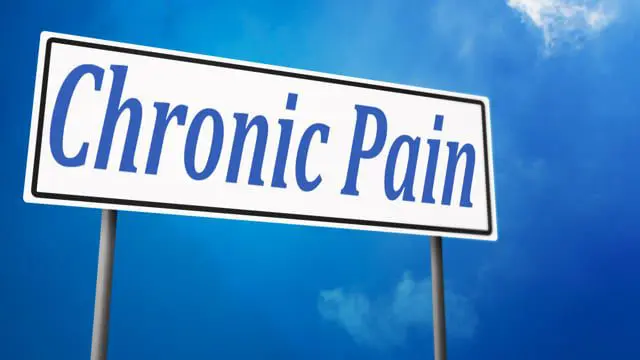Truck accidents are among the most devastating motor vehicle incidents due to the sheer size and weight of trucks. Navigating truck accident claims can be a daunting task, especially for those unfamiliar with the complexities of legal processes and insurance negotiations. In this article, we’ll explore the crucial steps to take after a truck accident, the legal aspects involved, and how to maximize your chances of obtaining fair compensation. We will also dive deep into the nuances of accident liability, insurance coverage, and reclamaciones por daños personales, providing you with a comprehensive guide to unlocking successful truck accident claims.
Immediate Steps After a Truck Accident
The moments following a truck accident are crucial. Acting promptly and following the correct procedures can significantly impact the outcome of your truck accident claim.
Seek Medical Attention
The first and most important step is to seek medical attention. Whether or not you feel injured, it’s vital to have a healthcare professional evaluate you. Truck accidents often result in serious injuries, some of which may not be immediately apparent, such as whiplash, internal bleeding, or traumatic brain injuries. Delaying medical treatment could not only exacerbate your injuries but also weaken your personal injury case. In personal injury law, your medical records serve as critical evidence to demonstrate the extent of your injuries and the damages suffered as a result of the accident.
Report the Accident
Once medical assistance has been arranged, it’s important to report the accident to local law enforcement. A police report will become an essential document for your truck accident claim, as it typically includes the officer’s initial assessment of the scene, statements from witnesses, and any indications of fault. It’s also necessary to report the incident to your insurance company as soon as possible to begin the claims process.
Gather Evidence
Gathering evidence at the scene of the accident is another critical step. This includes taking photos of the accident scene, vehicle damage, road conditions, and any visible injuries. Additionally, it is essential to collect contact information from the truck driver, their employer (if applicable), and any witnesses. This evidence can be used to support your claim and establish liability in your case.
Determining Liability in a Truck Accident
Liability in truck accident cases is often more complex than in standard car accidents. In most truck accidents, there are multiple parties involved, each of whom may bear some degree of responsibility. Unlike car accidents where only the drivers are typically held liable, truck accident claims often include the truck driver, the trucking company, and potentially other parties.
The Truck Driver
The truck driver’s actions are a significant factor in determining liability. If the driver was speeding, driving under the influence, or violating any traffic laws, they could be held accountable for the accident. Additionally, if the driver was fatigued due to long hours on the road in violation of federal regulations, their negligence could also be a key factor in determining liability.
The Trucking Company
Trucking companies are responsible for ensuring that their drivers are well-trained, their trucks are properly maintained, and that they comply with federal and state trucking regulations. If the company failed in any of these duties, they could be held liable for the accident. For example, if a company pressures drivers to meet unrealistic delivery schedules, leading to driver fatigue, this negligence could result in a successful claim against the company.
Third Parties
In some cases, third parties such as maintenance crews, truck manufacturers, or even the cargo loaders could be partially or fully liable for the accident. If a defective part contributed to the crash or if improperly secured cargo caused the truck to lose balance, these third parties might be held responsible.
Understanding Insurance Coverage in Truck Accidents
Truck accidents typically involve large commercial vehicles, and as such, the insurance coverage involved is often more complex and substantial than in regular car accidents. Commercial trucks are required to carry higher levels of insurance coverage, which can significantly affect the settlement process.
Commercial Insurance Policies
Unlike personal auto insurance policies, commercial truck insurance policies often have multiple layers of coverage. These policies may include primary liability coverage, excess liability coverage, and specialized coverages such as cargo insurance or hazardous materials coverage. Understanding these various policies is crucial for maximizing your compensation in a truck accident claim.
Uninsured/Underinsured Motorist Coverage
In some cases, even though the truck is heavily insured, you may need to rely on your own uninsured/underinsured motorist coverage. This could occur if the truck driver’s insurance is insufficient to cover the full extent of your damages, or if other parties involved in the accident are not adequately insured. It’s essential to review your own insurance policy to determine what coverage is available to you.
Settling vs. Litigation
Once fault and liability have been established, the next step is to negotiate a settlement. In many cases, truck accident claims are settled through negotiation with the trucking company’s insurance provider. However, it’s not uncommon for insurers to offer settlements that are lower than what victims are entitled to. In such instances, you may need to file a lawsuit to pursue fair compensation. Working with an experienced truck accident lawyer is crucial, as they can guide you through the settlement negotiation process or represent you in court if needed.
Maximizing Compensation for Truck Accident Claims
The goal of any truck accident claim is to recover compensation for your injuries, damages, and losses. However, maximizing that compensation requires a thorough understanding of the types of damages you are entitled to and how to present your case effectively.
Economic Damages
Economic damages are intended to compensate for tangible financial losses. These may include medical bills, lost wages, property damage, and rehabilitation costs. It’s essential to keep a detailed record of all expenses related to the accident, as these will be critical when calculating your compensation.
Non-Economic Damages
Non-economic damages refer to the more intangible losses you’ve suffered as a result of the accident, such as pain and suffering, emotional distress, and loss of enjoyment of life. These damages are often more challenging to quantify but are equally important in maximizing your compensation. An experienced abogado de lesiones personales can help you determine the appropriate amount of non-economic damages to seek in your claim.
Daños punitivos
In some cases, the court may award punitive damages in addition to compensatory damages. Punitive damages are intended to punish the at-fault party for particularly egregious conduct, such as reckless or malicious behavior. While not awarded in every case, punitive damages can significantly increase the total amount of compensation you receive.
Common Causes of Truck Accidents
To build a strong truck accident claim, it’s essential to understand the common causes of these types of accidents. Knowing the root cause can help establish liability and strengthen your case for compensation.
Driver Fatigue
Driver fatigue is one of the leading causes of truck accidents. Truck drivers are often under pressure to meet tight delivery deadlines, which can result in them driving for long periods without adequate rest. Federal regulations limit the number of hours a driver can be on the road, but some drivers and companies may violate these rules in the interest of speedier deliveries. Fatigue reduces a driver’s reaction time and increases the likelihood of accidents.
Distracted Driving
Distracted driving is another major cause of truck accidents. This can include anything from texting while driving to adjusting the radio or eating behind the wheel. Given the size and weight of commercial trucks, even a momentary distraction can lead to catastrophic consequences. Trucking companies are responsible for ensuring their drivers adhere to strict rules regarding cellphone use and other distractions while on the road.
Improper Loading
Improperly loaded cargo can cause a truck to become unbalanced, increasing the risk of a rollover or jackknife accident. Cargo that shifts during transit can also cause the driver to lose control of the vehicle. It’s crucial to investigate whether the truck involved in your accident was properly loaded and secured, as this may impact the liability in your case.
Statute of Limitations for Truck Accident Claims
Each state has its own statute of limitations for filing reclamaciones por daños personales, including truck accident claims. This is the legal time limit within which you must file a lawsuit. Failing to file within this time frame can result in your case being dismissed, and you will be barred from recovering compensation. It’s important to consult with a lawyer as soon as possible after an accident to ensure that you meet all necessary deadlines.
State-Specific Deadlines
In most states, the statute of limitations for personal injury cases is two to three years from the date of the accident. However, this can vary depending on the specific circumstances of the case. For example, if a government entity is involved (such as if the truck was owned by a municipal government), the filing deadline may be much shorter.
Exceptions to the Statute of Limitations
There are some exceptions to the statute of limitations that may extend the filing deadline. For example, if the victim is a minor or was incapacitated due to injuries sustained in the accident, the statute may be paused until they are able to take legal action. Similarly, if the at-fault party concealed their involvement in the accident or attempted to flee the scene, this may also extend the statute of limitations.
Truck Accident Injuries: Types and Severity
Truck accidents often result in more severe injuries compared to car accidents due to the significant size disparity between a commercial truck and a passenger vehicle. These injuries can lead to long-term consequences that affect your physical health, emotional well-being, and financial stability. Understanding the types of injuries commonly associated with truck accidents is essential when filing your truck accident claim to ensure all damages are properly accounted for.
Traumatic Brain Injuries (TBI)
One of the most serious injuries that can occur in a truck accident is a traumatic brain injury. A TBI occurs when the brain is damaged due to a sudden impact, which is common in high-speed collisions involving large trucks. Symptoms can range from mild concussions to severe cognitive impairments, and in some cases, TBIs can result in permanent disability. It is crucial to seek immediate medical attention after a truck accident, even if you feel fine, as some symptoms of a TBI may not appear until days after the incident.
Spinal Cord Injuries
Truck accidents frequently lead to spinal cord injuries, which can have life-altering consequences. Damage to the spinal cord can result in partial or complete paralysis, depending on the severity of the injury. Victims may require long-term medical care, rehabilitation, and assistive devices, which can lead to significant medical expenses. When pursuing a reclamación por daños personales, it’s important to work with medical professionals to document the extent of your spinal injuries and the potential long-term effects on your quality of life.
Broken Bones and Fractures
Due to the immense force exerted during a truck collision, broken bones and fractures are common. These injuries can range from minor fractures that heal within weeks to more severe breaks that require surgery, physical therapy, and long recovery periods. It’s vital to include all medical treatment, rehabilitation costs, and time missed from work in your compensation claim for broken bones and fractures sustained in a truck accident.
Internal Injuries
Internal injuries, such as damage to the organs, internal bleeding, and ruptured blood vessels, can be life-threatening if not promptly treated. These types of injuries are particularly dangerous because they may not be immediately apparent. If you’ve been in a truck accident, it’s essential to undergo a thorough medical examination to identify any internal injuries that could complicate your recovery.
The Role of Negligence in Truck Accident Claims
A key component in truck accident claims is proving negligence. Negligence occurs when a party fails to exercise reasonable care, resulting in harm to another individual. In the context of a truck accident, multiple parties may be negligent, including the truck driver, the trucking company, or even third-party contractors.
Proving Negligence
To successfully file a truck accident claim, you must prove that the other party acted negligently. This involves demonstrating that the truck driver or other parties owed you a duty of care, breached that duty, and that the breach directly caused your injuries. For example, if the truck driver was speeding or failed to follow traffic laws, this could constitute a breach of duty. Similarly, if the trucking company failed to maintain the vehicle properly, leading to an accident, they could also be held liable.
Comparative Negligence
In some cases, both the victim and the truck driver may share some degree of responsibility for the accident. In states that follow comparative negligence laws, your compensation may be reduced by the percentage of fault assigned to you. For instance, if you are found to be 20% at fault for the accident, your compensation will be reduced by that percentage. Understanding the concept of comparative negligence is crucial when negotiating your truck accident claim.
Federal Regulations for Truck Drivers and Companies
The trucking industry is heavily regulated by federal and state laws. These regulations are designed to ensure the safety of truck drivers and other motorists on the road. When a truck accident occurs, these regulations play a critical role in determining liability.
Hours of Service (HOS) Regulations
One of the most important regulations in the trucking industry is the Hours of Service (HOS) rule, which limits the number of hours a truck driver can operate their vehicle without taking a break. Fatigued driving is a leading cause of truck accidents, and HOS regulations are meant to prevent drivers from working long hours without sufficient rest. If a driver exceeds these limits and causes an accident, this could be used as evidence of negligence in your truck accident claim.
Maintenance and Inspection Requirements
Trucking companies are required to maintain their fleets and ensure that trucks are in safe operating condition. Regular inspections and maintenance checks must be conducted to ensure that issues such as faulty brakes, worn tires, and malfunctioning lights are addressed promptly. If an accident is caused by mechanical failure, the trucking company could be held liable for failing to adhere to these regulations.
Cargo Securement Rules
Improperly loaded or secured cargo is another common cause of truck accidents. The Federal Motor Carrier Safety Administration (FMCSA) has specific rules regarding how cargo must be secured to prevent it from shifting during transit. If cargo shifts and causes the truck to become unbalanced, leading to a rollover or jackknife accident, the party responsible for loading the truck may be held liable for the accident.
The Importance of Hiring a Truck Accident Lawyer
Due to the complexity of truck accident claims, it is highly recommended to work with an experienced truck accident lawyer. Truck accident cases often involve multiple parties, substantial damages, and intricate legal procedures. An attorney with expertise in this area can help you navigate the claims process, gather crucial evidence, and negotiate with insurance companies.
Gestión de compañías de seguros
Insurance companies often seek to minimize the amount they pay out on claims. In truck accident cases, this can involve downplaying the severity of your injuries, disputing liability, or offering lowball settlements. A skilled truck accident lawyer can counter these tactics and ensure that you receive fair compensation. They will know how to evaluate the full extent of your damages, including medical expenses, lost wages, and pain and suffering, and will negotiate aggressively on your behalf.
Filing a Lawsuit
While many truck accident claims are settled out of court, there are situations where filing a lawsuit may be necessary. If the insurance company refuses to offer a reasonable settlement, your lawyer can file a personal injury lawsuit and represent you in court. This involves gathering evidence, interviewing witnesses, and building a strong case to present before a judge or jury. A lawyer will ensure that your case is handled professionally and that all deadlines and procedural requirements are met.
Maximizing Your Compensation
An experienced truck accident lawyer will know how to maximize your compensation by identifying all potential sources of recovery. This includes pursuing claims against multiple parties, such as the truck driver, trucking company, and any third parties that may be liable. They will also help you calculate the full extent of your damages, including long-term medical expenses and non-economic damages like pain and suffering.
Common Defenses in Truck Accident Cases
When filing a truck accident claim, you may encounter various defenses from the trucking company or their insurance provider. Understanding these defenses can help you anticipate potential challenges and strengthen your case.
Contributory Negligence
One common defense is contributory negligence, where the defendant argues that the victim was partially responsible for the accident. For example, if you were speeding at the time of the crash or failed to signal a lane change, the defense may use this to reduce their liability. As mentioned earlier, states that follow comparative negligence laws will reduce your compensation based on your degree of fault.
Assumption of Risk
Another defense used in truck accident cases is the assumption of risk. The defense may argue that the victim knowingly accepted the risks associated with driving or being in a certain area, and thus bears some responsibility for the accident. While this defense is less common, it may be used in cases where the victim’s behavior contributed to the conditions that led to the accident.
Sudden Emergency Doctrine
En sudden emergency doctrine is a defense that argues the truck driver was faced with an unexpected emergency, and their actions were reasonable given the circumstances. For instance, if the driver swerved to avoid hitting another vehicle or pedestrian and subsequently caused an accident, they may argue that they were acting in response to a sudden emergency. However, this defense will only hold up if the emergency was truly unforeseeable and not caused by the driver’s own negligence.
Truck Accident Settlements vs. Trials
Once liability has been established and damages are calculated, you will need to decide whether to accept a settlement or proceed to trial. Both options have their advantages and disadvantages, and it’s important to understand the differences before making a decision.
Liquidaciones
The majority of truck accident claims are resolved through settlements. A settlement occurs when both parties agree on a compensation amount without going to trial. The benefits of settling include a faster resolution and lower legal costs. However, the downside is that the settlement amount may be lower than what you could potentially receive in court. A knowledgeable lawyer can help you assess whether the settlement offer is fair and whether it’s in your best interest to accept or negotiate further.
Going to Trial
If a settlement cannot be reached, your case may go to trial. While trials can result in higher compensation amounts, they are also riskier, more time-consuming, and expensive. During a trial, your lawyer will present your case to a judge or jury, who will ultimately decide the outcome. It’s important to have a lawyer who is experienced in litigation and can effectively argue your case in court.
Conclusión
Truck accidents are complex and often involve multiple parties, intricate insurance policies, and serious injuries. Navigating the legal landscape of truck accident claims can be overwhelming, but understanding the steps involved, the legal issues at hand, and how to effectively present your case can help you unlock a successful outcome. Whether through negotiation or litigation, securing maximum compensation requires a thorough understanding of both the legal and practical aspects of your claim. By seeking the help of an experienced truck accident lawyer and remaining informed about your rights and responsibilities, you can improve your chances of receiving the compensation you deserve.








